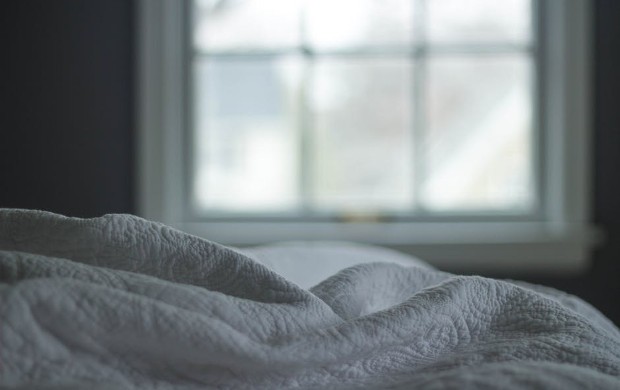We all love the refreshing feeling that comes after a good night’s sleep, but for those living in busy cities like London, the knock-on effects of light and noise pollution can be incredibly disruptive and harmful to sleep quality and quantity.
Both of these are incredibly problematic and widespread: a recent study by GFZ German Research Centre for Geosciences showed that from 2012 to 2016, the surface area of the planet that was lit at night increased by more than 2% each year. And, multiple research projects carried out in cities around the world have found noise pollution to be detrimental to the population’s health.
Why quality of sleep matters
With jam-packed modern schedules, we often neglect the quality of sleep we’re getting and just deal with the disturbances we encounter at night.
But Ieva Baradouska, comfort expert at mattress specialist Dormeo, says discovering ways you can improve your sleep quality should be a priority: “A good night’s sleep is key to being healthy, both in mind and body. While things like a good comfortable mattress and pillows are considered very important for sleep quality, your sleeping environment is just as important.
“Light and noise pollution can cause major intrusions to your sleep, which can really take its toll on a multitude of life aspects. Using your phone while you’re in bed, hearing persistent noises on a nightly basis or even the glow of a street lamp can directly affect the way you function during the day, contributing to low mood, irritability and poor concentration.”
As you can see, sleep really matters for your health and wellbeing, and pollution can ruin the amount of rest you get. Read on to find out how you can reduce the effects of both light and noise pollution and improve your quality of sleep.
Light pollution and sleep
One of the most common ways that light can affect sleep is from the dreaded night-time scroll. Regularly checking your work emails and browsing online before you try and nod off can be a major hindrance to the amount of shut-eye you’re getting, with the blue spectrum light that comes from your phone screens known to prevent the sleep hormone, melatonin, from being released.
LED lightbulbs are one of the major contributors to sleep disturbance and insomnia, which makes living in a city a hazard. Places that tend to be more of a vibrant and sociable hub, like London, are not only affected more by the busier life schedules that demand the population to stay up later, but by the increased amounts of artificial lighting that accompany these nocturnal activities. Having excess light beaming through your window when you’re trying to sleep makes it harder for your circadian rhythm—the internal clock that dictates your sleep/wake cycle—to function normally.
While some of these issues might be completely out of our control, there are some measures we can take to prevent some of the light-related disruptions to our sleep:
Minimising light pollution
Switch to blue-blockers
Try swapping out those economic LED lightbulbs in your nightlight for ones with blue-blocking properties, like these OcuShield blue light-reducing LED lamps, to prevent your melatonin levels from being impacted. Similarly, ditching the alarm clock will not only stop you from clock-watching all night—which can be problematic to sleep quantity anyway—but will also eliminate some blue light exposure. With modern smart phones having alarm clocks built in, you can set the time and flip your phone upside down to minimise disruptions to your sleep.
Hang up some blackout blinds
External light pollution from street lamps and neighbouring houses can be much harder to control. However, investing in a good pair of blackout blinds, like these ones from Blinds2Go, can limit the amount of blue, or natural, light entering through your window, reducing sleep issues.
If having various LED lights in your room is necessary, or you can’t make the change immediately, try covering up the things which may be having an impact. Placing something in front of your alarm clock will dually benefit you, preventing you from staring at the time until the small hours, as well as limiting the blue light your eyes are taking in.
Get some motion sensors
Placing lights with motion sensors outside of your home, like these ones from Universal Lighting Services, can mean there’s not constant illumination through the night and less light pollution nearby—this will also help to save you money and improve the quality of sleep for both you and your neighbours. If you’re friends with your neighbours, you could even gather them to discuss all making this change. Even if they can’t oblige in this way, they may be willing to switch their external lights to LED lights with blue filters, so everyone can catch their forty winks!
Noise pollution and sleep
Uncontrollable noise when you’re trying to catch up on your sleep can not only be irritating, but highly disruptive to both your physical and mental health when you’re trying to catch some well-needed Zs. For instance, night-time environmental noises have been linked to cardiovascular diseases, according to a review in the Noise & Health journal.
Persistent noise like traffic can be a lot more noticeable at night when your senses are refined, especially if the volume is over 40 decibels, which is loud enough to affect the general population. At the same time, young children, the elderly and people who are ill are even affected by noise which is between 30-40 decibels.
Although noise isn’t thought to cause mental health issues, it’s been claimed to accelerate and intensify any dormant problems, particularly for illnesses like neurosis and psychosis. This highlights the severity of noise pollution, which can cause both immediate and long-lasting effects—so much so, that the World Health Organisation (WHO) have created Night Noise Guidelines for Europe to educate Europeans on the effect it can have and lay down some suggested volume levels.
Minimising noise pollution
There are mainly cheap solutions to noise pollution, so whatever your budget, you can afford a good night’s sleep.
Pick up some earplugs
Although you can’t stop what external things are making those frustrating background noises while you sleep, there are some precautions you can take to try and minimise their effect. Purchasing a pair of earplugs, like these Boots silicone ones, can help to directly block out irritating sounds, giving you a better chance of getting to sleep.
Engage in some Feng Shui
Moving your bed away from the window or walls which connect to the outside, or placing things like wardrobes or bookshelves against these walls will lower your exposure to external noises and act as an added layer of insulation.
Consider double-glazed windows
If you’re looking to upgrade your home anytime soon, you may want to check that your current windows aren’t letting in any draughts, which would probably suggest they were letting in excess sound too. Double-glazing has been found to be much more effective at tackling both of these issues but can be more expensive because of it—well worth the investment for a peaceful night’s sleep though!










